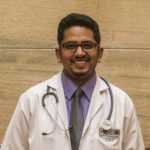 Dr. A works as a surgeon in a small town of India. Like any other small town doctor he has settled for a practice here because of affinity and close proximity to his home. Building up from the scratch, Dr. A has slowly set-up an infrastructure that provides the best possible quality and affordable healthcare to patients from surrounding rural areas who can’t afford highly expensive private hospitals or far-off government hospitals.
Dr. A works as a surgeon in a small town of India. Like any other small town doctor he has settled for a practice here because of affinity and close proximity to his home. Building up from the scratch, Dr. A has slowly set-up an infrastructure that provides the best possible quality and affordable healthcare to patients from surrounding rural areas who can’t afford highly expensive private hospitals or far-off government hospitals.
Dr. A juggles between multiple roles of surgeon, physician, administrator, treasurer and public health expert, often operating as a one-person medical team. While he still enjoys his profession, the lack of a ‘team’, as many doctors would agree, makes the job a daily-struggle and gruesome. Most of the support-staff hired in these clinics and hospitals are highly untrained and unskilled. For the lack of any better alternatives, doctors have to be content with this unfortunate setting. Often, this results in a team that lacks skills, discipline, experience and attitude to perform even regular procedures, leave alone highly complex surgeries. When one of the imaging machines malfunctioned in the middle of an operation, he had to wait almost a week for a technician to arrive from the state capital, and the surgery had to be continued blindly with archaic methods. In another instance, he had to use a manual orthopedic drill, when the automatic drill stopped functioning in the middle of another crucial operation. Lack of technical support, unskilled staff and frequent power-cuts makes this a usual occurrence. Inevitably quality of care and clinical outcomes are sub-optimal.
An anesthetist is the captain of the surgical ship, especially when things goes wrong. With only two anesthetists in town, there is a fierce scramble for his dates by orthopaedists, surgeons and obstetrician’s alike. Such issue gives add up to stress of doctors like Dr. A! Timely, affordable access to screened blood products is essential to delivery of quality surgical care. Most of the time blood products are scarce and even if available the improper and neglected maintenance of blood banks is a major cause of worry.
The challenges of chronic poverty limits access to surgical care. Out-of-pocket payment of hospital fees, supplies and medications demands the surgical care to be extremely affordable, often adequately provided by doctors. Culture belief and general mistrust of healthcare only adds to the challenges face by healthcare providers in small towns.
The seemingly disinterested Dr. A is also a part of a larger problem of burnout among doctors. Without any recreational facilities and dearth of whatsoever social life, numerous surgeons from smaller towns are a victim of burnout-associated symptoms such as emotional exhaustion, dissatisfaction and physical weariness. This has led to depersonalization, decline of empathy and reduced personal and professional satisfaction. The cause can be traced to widely varying factors such as overwhelming workload, poor specialists-patient’s ratio, deficiency of recreational facilities and insufficient support from medical organizations such as Indian Medical Association (IMA). IMA facilities in small towns have no provisions for recreational opportunities and CMEs and workshops are rare.
Medicine is a tough job no matter where you live, but it’s even more complicated when there is no formidable support system. Specialists like Dr. A continue to provide essential and specialized surgical care in rural areas and small towns without getting much recognition. While global health surgery has shed the tag of the ‘neglected stepchild’ of global health, and is now being recognized as an ‘indivisible, indispensable part of healthcare’ and several transnational initiatives such as The Lancet Commission on Global Surgery (LCoGS) and The WHO Global Initiative for Emergency and Essential Surgical Care (GIEESC) has been initiated . Timely and affordable access to essential surgical care is the key to equitable healthcare delivery in underdeveloped regions of the world. Yet, the challenges faced by surgical care providers in low resource settings and how they overcome these challenges to provide care to impoverished patients have hardly been understood. It is time that we recognize and value surgeons like Dr A, and also build up our health systems in a manner that they can function optimally. Universal health coverage includes essential and safer surgery and anesthesia and it is time that investments are made in this direction.
About the author: Ankit Raj is a final year medical student from Kasturba Medical College, Manipal, India and is a member of The International Student Surgical Network (InciSioN).
Competing interests: I have read and understood the BMJ Group policy on declaration of interests and declare I have no conflicts of interests to declare.